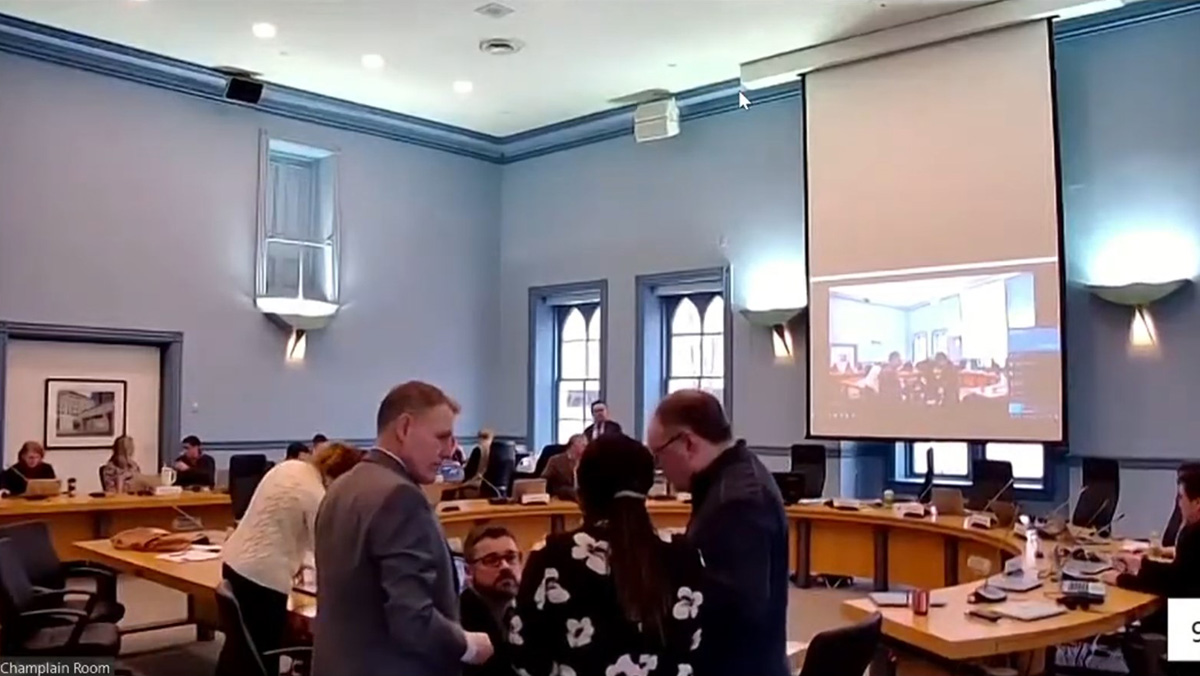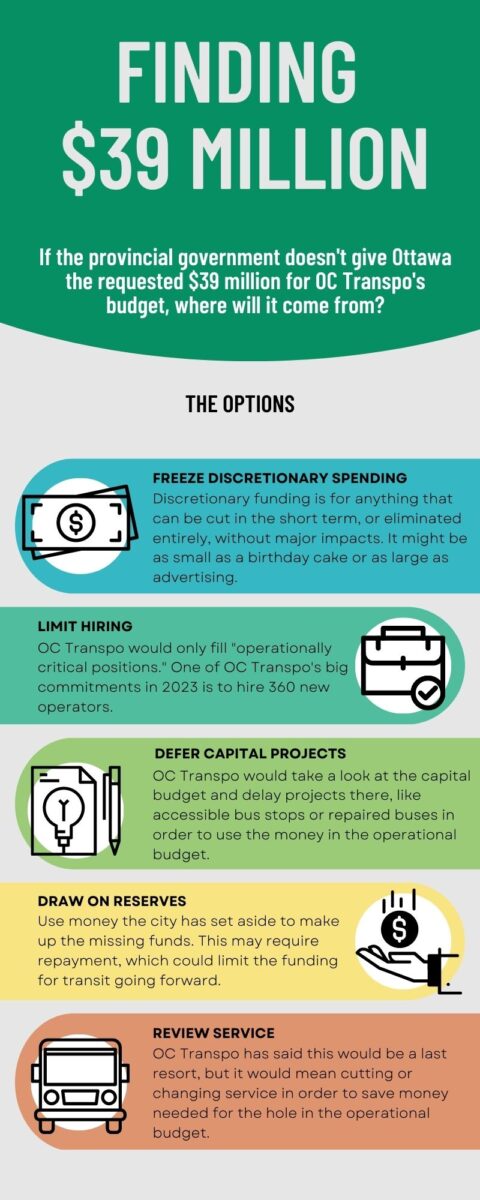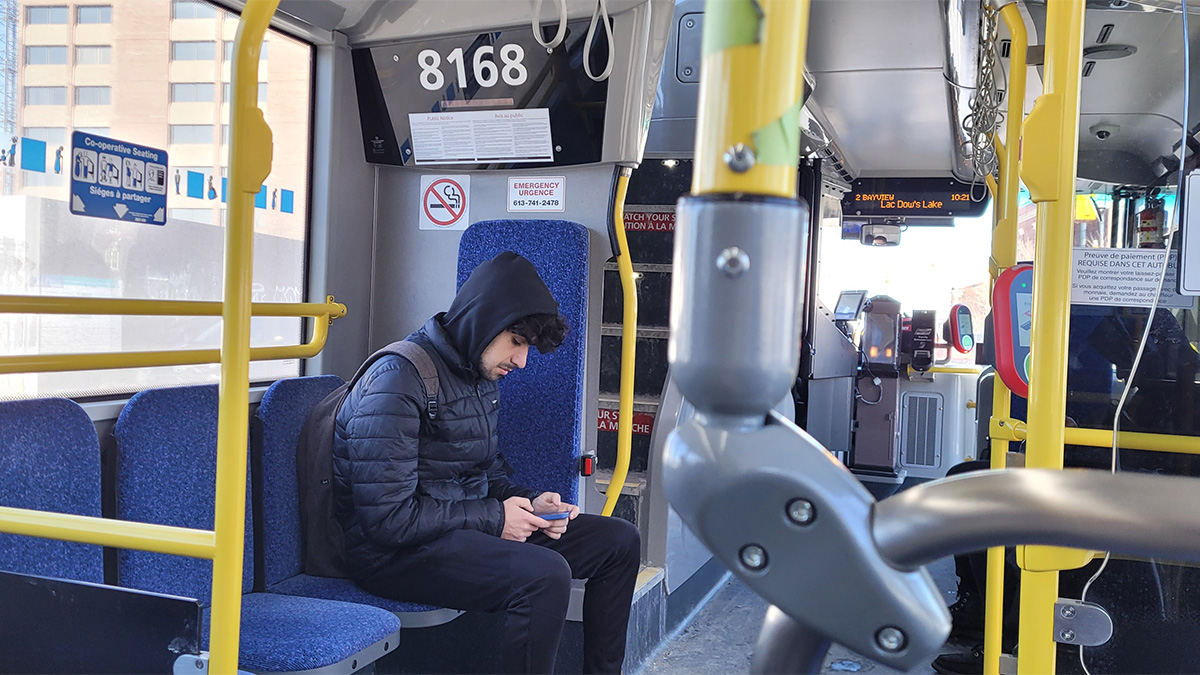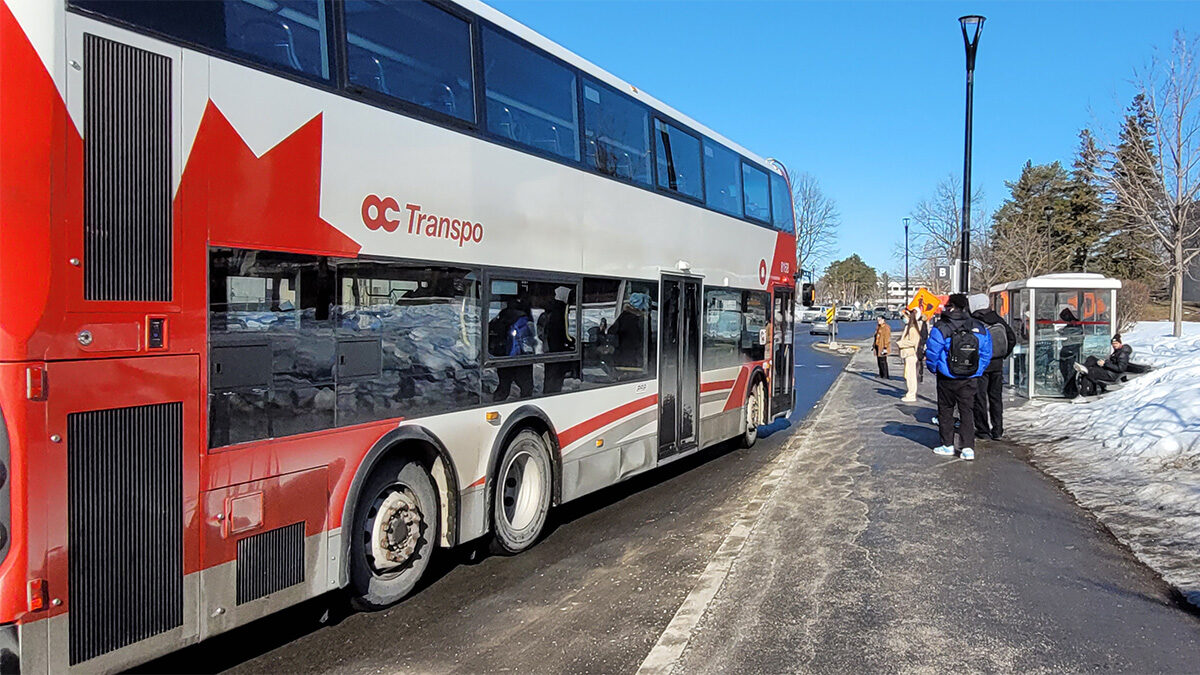Since the start of a new year with a new mayor and council, the City of Ottawa has been building its annual budget amid various controversies including OC Transpo’s controversial draft budget for 2023.
The draft details plans to freeze bus fares, hire 360 new operators and launch O-Train Lines 2 and 4, among other things. It projects an overall expenditure of $706 million on OC Transpo and Para Transpo operations, nearly $11 million more than in 2022. Revenue is forecast at $316 million, compared to the $322 million forecast last year.
More important, the plan hinges on the Ontario government providing $39 million just to keep the system afloat.
On Feb. 9, Ottawa’s transit commission approved the budget proposal which will be before city council on March 1.
River Coun. Riley Brockington was the only member of the commission to vote against the proposal. He said the anticipated $39 million in provincial funding was among his major concerns.
“I have yet to see any communication, any press release from the (province), confirming that we’ll get this money,” he said.
Cities in Ontario have been receiving regular provincial funds since 2020 because of the COVID-19 pandemic. Some funding was designated to keep municipal transit operating despite sharply decreased ridership.
‘I have yet to see any communication, any press release from the government, confirming that we’ll get this money.’
— Riley Brockington, City of Ottawa councillor, River Ward
Brockington noted that, in 2022, the city did not receive the provincial funding until December and it still did not cover the full deficit. OC Transpo had a $95 million shortfall for 2022 and received in all only about $75 million from the province. That left a $25-million hole the city is still attempting to fill.
“I just want to remind the commission,” Brockington said, “that last year the city treasurer said we would be getting ‘full freight’ — and we passed a budget thinking that that deficit was going to be covered off, and it didn’t. And when I’m at the (Association of Municipalities of Ontario meetings) and I raise this, literally every single board of directors meeting it gets bleaker and bleaker about how long upper levels of government are going to keep bailing out public transit agencies.”
Brockington said he planned to spend time before the council meeting investigating whether the city can rely on this money.
When asked if the city was “fairly confident” that it would receive the provincial funding, deputy city treasurer Isabelle Jasmin told the transit commission that “it would be the same strategy as last year, where we weren’t sure, and we ended up getting funding.”

A city budget has two parts: the operating budget and the capital budget. The operating budget pays for day to day services, while the capital budget funds projects that maintain, improve or add to the city’s infrastructure.
“For example,” said Ottawa economic consultant Inez Hillel, “if you had a transit operator, their salary would fall in the operating budget, but bus purchases — that’s going to be capital budget.”
Hillel is with the economic consulting firm Vivic Research. She attended a Horizon Ottawa meeting on Feb. 6 meant to explain the city budget to Ottawa residents. Hillel said the city cannot go into debt with its operating budget, but can do so for the capital budget.
However, relying on provincial help isn’t the same as going into debt. The $39-million shortfall is part of OC Transpo’s operating budget.

In response to an inquiry from Capital Current, the City of Ottawa said that “if some or all of the $39 million is not received from senior levels of government, staff would rely on the same strategies identified throughout the pandemic, which may include:
- Discretionary spending freeze;
- Limit hiring to operationally critical positions;
- Review the capital program for possible deferrals;
- Drawdown on capital reserves;
- Borrow from other City reserves which would require repayment over next several years;
- Review of service levels as a final measure.”
Public transit advocate and uOttawa Prof. Dr. Laura Shantz expressed concern about relying on the province when she spoke as a panelist at the Horizon Ottawa meeting.
Shantz acknowledged that the city is cutting $47 million from the capital budget compared with 2022, and added that further cuts — if the provincial funding doesn’t come through — could have serious consequences.
“It’s a lot of kicking the can down the road on upgrades and future spending,” the runner-up to Rideau-Vanier Coun. Stéphanie Plante in the October 2022 municipal elections, said. “(It) doesn’t actually mean less buses roll by your bus stop, but it might mean that those bus stops which right now are physically inaccessible — which Ottawa has a decent number still — they’re not being made accessible anytime soon. It does mean that all those things that people have been asking for, waiting for improving, we have no idea if that’s what will be cut or not.”
Shantz said that Ottawa should consider raising municipal taxes more instead of cutting services.
“Honestly, not the most popular opinion out there,” Shantz said, “but let’s look at Toronto. Toronto is raising their municipal taxes by six or seven per cent this year. Mississauga I believe is raising theirs by 10 per cent. There is a real climate of austerity in Ottawa, but we are facing significant high inflation.”
‘There is a real climate of austerity in Ottawa, but we are facing significant high inflation.’
— Laura Shantz, transit advocate and University of Ottawa professor
While Shantz said the current approach to budgeting is better than in the early 2000s, when she recalled the city would “just chop chop chop, chop (the budget) left, right and centre,” she also said that the (provincial funding) hole was not reassuring, and that she thought suburban bus routes would be the first to be cut.
“It’s just too tight,” Shantz said. “It’s playing with fire, honestly.”

Some 21 delegates registered to speak at the transit commission meeting, all of whom expressed concern about the state of Ottawa’s transit system, including its reliability, frequency and quality. Many also called on the transit commission to re-evaluate some part of the draft budget.
Sam Hersh, of Horizon Ottawa, told commissioners he too was concerned about the reliance on unconfirmed provincial money.
‘You can’t just shove the blame to other levels of government because you’re budgeting for something that won’t come.’
— Sam Hersh, transit advocate, Horizon Ottawa
“We need to address the assumption here by staff and Mayor Sutcliffe that there’s money coming from the feds and the province,” Hersh said. “The importance of advocating for more operating dollars from different levels of government is one thing that I happen to agree with the mayor on, but, let’s be honest: we know this money most likely isn’t coming. It’s unwise and disingenuous to base a large portion of the budget off of that.”
Hersh added cutting services if the funds don’t materialize is not a reasonable solution: “You can’t just shove the blame to other levels of government because you’re budgeting for something that won’t come.”
Other delegates, including Shantz, also highlighted the provincial cash question during their presentations. Personal stories allowed others to articulate the importance of the transit system to them.
“I lost a friend that used Para Transpo,” said John Redins, a Para Transpo user. “Two weeks before that, he lost his dad. He couldn’t find a ride. His friends wanted him to go get some help and get him out of his house. He couldn’t do that. The next morning, he didn’t wake up. Now, it is a mental health issue. How would you feel if you needed a quart of milk, but you can’t go out?”
Some residents blame Sutcliffe. Centretown resident Quinn Cooke Millard, who was not a delegate at transit commission meeting, said they were frustrated but not surprised with the state of the OC Transpo budget and added that the impacts of reduced services will hit downtown residents hardest.
“I wasn’t fooled when (Mayor Mark Sutcliffe) came in saying he’d be a mayor for all of Ottawa,” said Cooke Millard. “He’s a mayor for suburban Ottawa, not urban Ottawa.”




